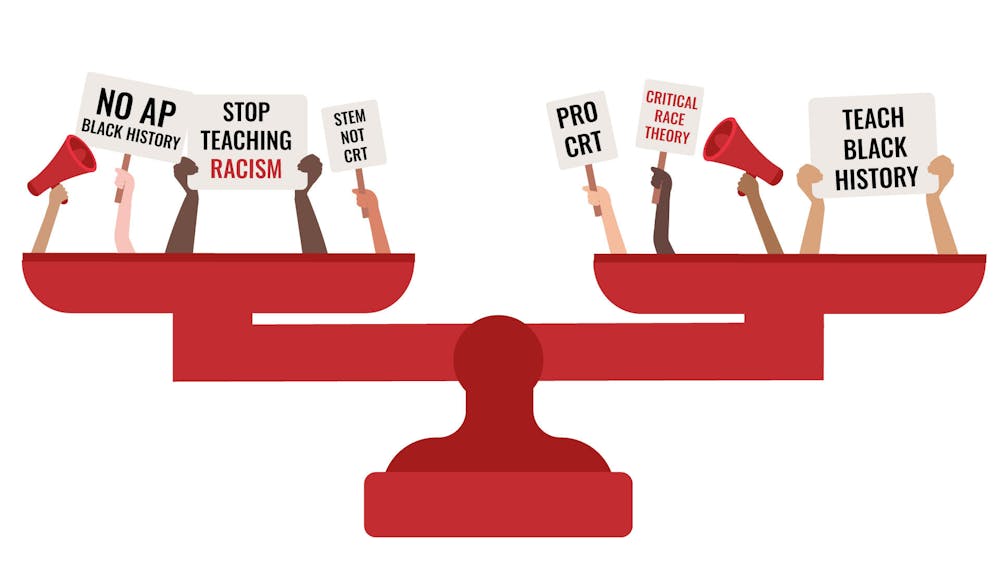Upon assuming office on Jan. 8, 2023, Ron DeSantis rejected a new version of the Advanced Placement African American studies course for Florida’s public schools. During a press conference Jan. 23, DeSantis argued that the course was pushing an agenda on students.
On Feb. 1, College Board revised the African American Studies in correspondence to Florida State Law and released a new curriculum for the new Advanced Placement course. However, critics have noticed that the program has several important voices and themes from black scholars missing from the curriculum such as Black feminism literary thought and Black queer studies.
Florida’s Board of Education supports DeSantis’s actions, claiming that the indoctrination of students into “woke culture” would violate state laws regarding how race can be taught in the classroom.

Randy Williams, vice president and associate provost for Inclusive Excellence and professor of education. Photo courtesy of Elon University.
This is not the first time DeSantis placed restrictions on education. Last year he signed the Florida Parental Rights and Registration Act – also known as the Don’t Say Gay Bill – prohibiting classrooms from teaching sexual orientation and gender identity in elementary grades.
Randy Williams, vice president and associate provost for Inclusive Excellence and professor of education, spoke with Elon News Network and explained how this new policy will influence education in Florida.
What do you think will be the biggest impact because of this policy?
I’ve read some of the news reports and watched some reports as well. But obviously drawing attention to this particular class of AP African American history having, I believe the quote is, ‘No educational value, is troubling to understand.’ Separating any group from American history is difficult, challenging thought from my perspective. So I think it will have a damaging effect on what we know of our history, not just what we know about history, but how we understand our contemporary time as well. So I believe that this would have an effect on the learners in the state of Florida, but it also radiates out beyond the borders of the state into other areas of this country as well. I think we also have to be concerned with precedents being set for citizens and how other states and political leaders will follow suit or find some interest in this as well.
Do you think this will affect diversity and equity education in Florida somehow?
Diversity, equity, inclusion for sure, and because there are going to obviously be limitations on what can be taught then, at least according to law. So there’s going to be challenges of this sort for sure in the state of Florida.
How similar do you think this new policy is to the Florida Parental Rights and Registration act, commonly known as the Don’t Say Gay bill in Florida, where they are also preventing young children from learning about LGBTQ education?
I haven’t read either policy side by side and sort of compare, but the whole idea when I zoom out and think about this from a higher level — and just seeing the suppression of understanding about identities, and we all have differences, we have similarities, but we all have differences as well — and if we could better understand those differences, we could probably live more civilly together. So the suppression of learning on any type of identity seems to be in a direction that’s not aligned with educators who are truly trying to develop people.
How would you respond to supporters of the ban saying that the class is indoctrination?
I would say that just because you don’t like something doesn’t mean that it’s not education. And again, I don’t understand how you can separate the history of one particular group from American history, particularly when you think about indigenous people and the dispossession that they experience, and then African people what the enslavement that they experience. So without understanding those, you can’t have a near complete or complete education of U.S. history. So I think you have to understand that any community and sub community within the larger have to have an understanding of the group.


